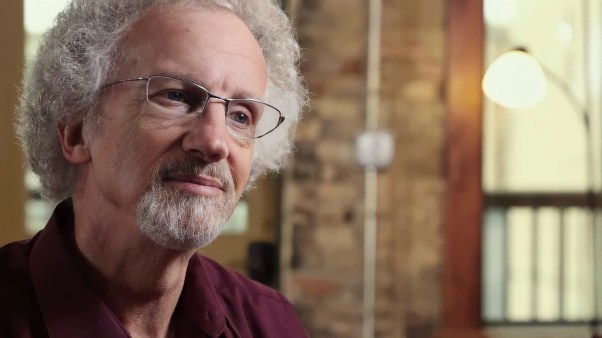If you work with teens, you have come across the following scenarios in recent years:
A dad discovers his teenage son has been accessing pornography on the smart phone they brought him last Christmas.
A teenage girl meets a boy online and begins "chatting," only to discover the "boy" on the other end of the messages was actually a 40-year-old married man.
A mom learns from another parent that her ninth grade daughter has been using the SnapChat app to send and receive indecent images with a boy in her class. The situation worsens when the boy saves several screen shots of the images and shares them with other students, destroying the girl's reputation.
These are nightmare scenarios. But as someone who works with teenagers, I am encountering them more and more. Maybe you have had to face similar situations. If not, it's only a matter of time.
The idea that we can insulate our kids from a highly sexualized culture is naïve. With apps like SnapChat and Bang with Friends out there—not to mention sexually suggestive images broadcast in primetime (think Miley Cyrus's MTV Video Music Awards "performance") a new era has dawned. But I believe we can help them navigate this new world, and help them discover God's best for life, relationships, and sexuality.
Through working with teenagers, I have discovered some practical approaches that can make all the difference. Here are a few ways every church leader can help teenagers navigate an overly sexualized culture and avoid the many pitfalls and pain it can bring.
Look in the Mirror
In recent years, our teens have seen fallen leaders, church scandals, and cover ups of abuse. It is imperative we not underestimate the impact our example can have on our kids. We, too, have been affected by the deluge of sexual temptation. Teens are perceptive. They may not know the full extent of the struggles we face, but they notice when our spiritual lives are compromised by sexual sin. It's not enough for leaders to teach on sexuality. Our teens need leaders who are actively resisting the onslaught of temptation in their own lives.
Paul implored Timothy to "set an example for the believers in speech, in conduct, in love, in faith and in purity" so he could "save both yourself and your hearers" (1 Tim. 4:12, 16). Paul's challenge to this young leader is a call for us today. We need to model a life of love, faith, and purity as we bring hope and direction to a watching generation.
Our relationships, our marriages, and our walk need to inspire our teens to pursue something greater than what the rest of the world is offering them.
Partner with Parents
Some parents are oblivious to the kinds of challenges their teens are facing. Others are aware of the dangers, but have no idea of what to do. So out of fear, they suffocate their teens with restrictions, or live in obsessive worry. I have rarely met parents who just don't care. Most often, they feel overwhelmed and under-educated about how to deal with the issues their kids are facing. Parents are still the primary faith-influencers. What we do on a Friday night or Sunday morning can't compete with what happens in the home 24/7. Therefore, when we consider how we can best help teenagers in our overly sexualized culture, it's imperative we find ways to inform and equip parents.
A number of years ago, I made a shift in the way I partnered with parents in my student ministry. Rather than simply informing them about our programs and events, I decided to begin teaching and training them about youth culture. I used all modes of communication at my disposal, including social media, a monthly newsletter, and parent meetings.
Now I am looking to take partnership with parents one step further by hosting parent seminars that bring in area experts. By becoming a resource for parents, you equip them to help their children, and you strengthen your relationship with the entire family.
Listen to Students
There's an assumption in youth ministry that you have to be best friends with your students in order to reach them. You've seen the guys who have tried this. They have ripped (or skinny) jeans, a faux hawk, and maybe some tattoos—all in a desperate attempt to have kids think they're cool.
But as someone who stands in front of high school students regularly, I have found teens don't expect me to be their best friend. They don't expect me to dress their age. I don't need to act like them to be heard. They don't want another buddy; they want someone to lead them. If we show them that we genuinely care for them and are willing to invest in their lives, they will give us their time and trust.
The good news is that the current millennial generation is more open to listening to church leaders, coaches, teachers, and parents than previous generations. Unlike the cynicism that seemed endemic among Gen-Xers, millennials are open to advice and guidance. Therefore, it is imperative that we take time to understand their issues, their struggles, and the world they occupy.
To help teens it is essential we gain at least some understanding of the pressures and temptations they face. But how can we learn about youth culture from the outside Watching TV shows, reading magazines, and scouring the Internet might help, but there's a much simpler way: ask our teens!
A few months ago I met three high school boys in a coffee shop as they talked about life, sports, and high school "drama." By the end of our time together, they had shared some of their greatest joys and struggles with me. I was there to listen and learn. I also asked some direct questions, including, "What are the greatest challenges you face when it comes to pursuing purity?" What they shared with me in the following minutes was surprising and authentic. I found it incredibly helpful as I considered how best to minister to these guys and their friends.
Taking time to build relationship with teenagers becomes a doorway into finding out their real issues. If we take time to invest in them, they will share with us. The difference between a student being influenced primarily by their peers and surrounding culture or being influenced by God's truth and the church depends largely whether leaders of the church are willing to listen to them.
Tackle Tough Topics
Too many churches run away from tackling the tough issues of sexuality. Rather than engage the struggles our teens find themselves in, they somehow think teens will "get it" if we just teach the Bible. Don't get me wrong—I'm all for solid Bible teaching. But we need to apply biblical truth to the specific issues teens face as well. In the past few years, I have seen students coming to our ministry from other churches because, in their words, "My church doesn't talk about the stuff I am going through."
They don't expect me to dress their age. I don't have to act like them to be heard. Millennials are open to advice and guidance.
We can avoid tough issues, and try to wrap our kids up in a Christian bubble, but ultimately it will burst. As I have observed students going off to college year after year, I have seen a trend in how they navigate the challenges and temptations of college life. The students who were exposed to teaching that tackled the real issues of their sexualized culture almost always do better than those students who were overly protected from their culture. Our teens are surrounded by sex and are bombarded constantly. It's crucial that we teach on relevant topics regularly.
Of course our teaching must be age-appropriate, and we must communicate what we're saying with parents. But it's essential we tackle tough issues honestly. I've spoken to teenagers who became bitter because they felt the church was "holding out" on them. One 17-year-old student told me that no one (including his parents) had ever even mentioned pornography and masturbation to him.
I understand that it can be awkward to address such topics, but this young man felt like his family and church had failed to be honest with him about these issues—and he was struggling. While he was battling lust on his own, he felt like the adults in his life didn't care. It is imperative we empower parents to have these hard conversations with their children, and then look to continue teaching on these issues in a straightforward, truthful way.
Ask Teens for Help
I have found that one of the most effective ways to apply God's truth to the lives of teens is to recruit teens to help create and design the messages and studies. First we listen to them, try to understand the issues they and their peers are facing, and then we craft our messages around the thoughts they've shared with us. By using teens to create a message series, we can be sure that we will meet the felt needs of our audience.
Not only can teenagers help us design our messages, small groups, and Bible studies, we can also call on them to teach parts of the message. There is nothing more convicting for a teen than to see one of his or her peers speaking God's truth. While no student in our ministry is walking the perfect walk, we can recruit those who are seeking to deepen an authentic faith.
In the past year, a volunteer and I have worked with a team of nine students to design a three-week message series. After the series we discovered that the student-created message series had the most impact on the teens. While it was a great deal of work (and messy at times), it clearly taught me the power of using teenagers to reach their peers with a pertinent message.
None of these ideas is new or terribly complicated. But I have found these fundamental, back-to-basics methods are the most effective for engaging and helping students flourish in an overly sexualized culture. Ultimately what will make the most difference in the lives of students is God working through their parents, and through you and me. Leaders who care about them enough to address the hard issues they're facing will make a difference in their lives that will, literally, be eternal.
Phil Bell is a family life pastor at Keystone Church in Saline, Michigan.
Copyright © 2013 by the author or Christianity Today/Leadership Journal. Click here for reprint information on Leadership Journal.









